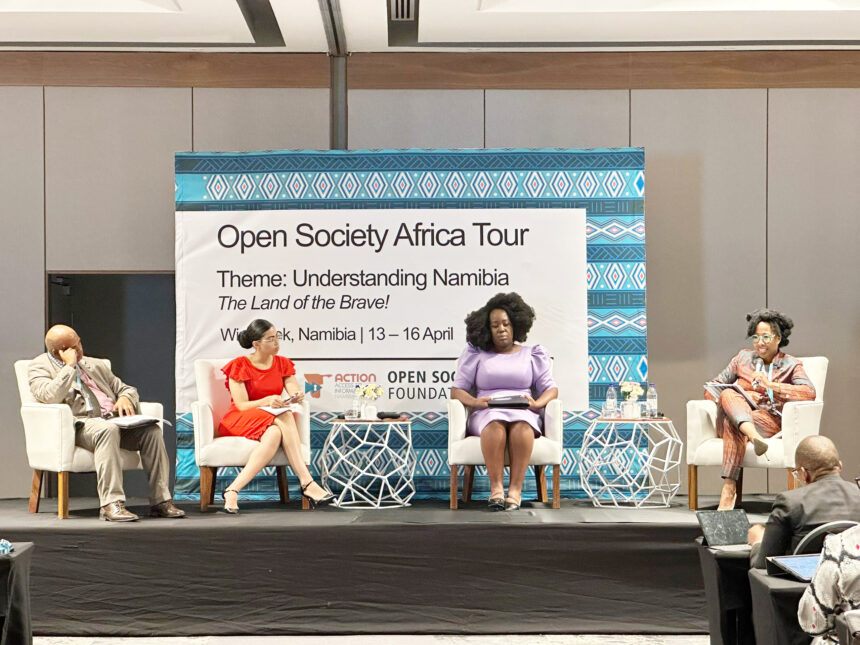Utaara Mootu, a Member of Parliament from the Landless People’s Movement, has voiced worries regarding the insufficient inclusive policies to address youth unemployment in Namibia, an issue that persists 35 years post-independence.
She questioned the current regulations, pointing out that they seem to benefit only the elite, leaving numerous young individuals behind.
“The Black Economic Empowerment policy, introduced after independence, aimed at broadening economic ownership, but it has mainly resulted in the rise of a small elite group. So, where does this leave our youth?” she expressed during a dialogue hosted by the Open Society Foundations and Action Coalition-Namibia recently.
Mootu stated that this elite segment has aligned with another group benefitting from colonial injustices pre-independence, collectively wielding significant control over the economy.
“With one of the highest youth unemployment rates, what policies are in place to generate job opportunities for young people?” she questioned.
She acknowledged the significance of having a female President as a positive advancement for Namibia.
However, she highlighted that more than symbolic victories are necessary to tackle the pressing issue of youth unemployment.
Mootu stressed that developing inclusive, effective policies that provide meaningful opportunities for youth across the nation are essential, transcending mere gender representation.
“This is more than just being first. It’s fundamentally about addressing structural injustices within the economy. Currently, the system hasn’t shifted leadership. It simply changed its façade. The existing party manifesto reflects the tenure of a government that has been in power for 35 years,” she noted.
Patience Masua, a governance and policy specialist, noted the importance of representation.
She asserted that the youth representation in Parliament must extend beyond young Namibians from Windhoek.
“It cannot just involve young people from Windhoek accessing these opportunities. We need to decentralise these prospects. There are multiple layers of injustice – one of which is worsening climate injustice,” she affirmed.
Masua stated: “We need a comprehensive discussion on enhancing decentralisation so that during climate emergencies, learners in northern regions don’t miss school, while those in Windhoek continue attending, simply due to better access to 4×4 vehicles and less impact from poor road conditions”.
The Open Society Foundations and Action Coalition-Namibia facilitated a two-day high-level discussion on Monday and Tuesday, addressing various issues.
This dialogue brought together youth, women leaders, academics and international human rights experts.
Topics covered ranged from youth participation in policymaking and job- creation, to the inclusion of cultural leaders in discourse and reparations.
A key focus was on the new chapter Namibia is entering under its first female President Netumbo Nandi-Ndaitwah.
Deputy Minister of Education, Youth, Innovation, Sports, Arts and Culture Dino Balloti encouraged the youth to take pride in having a voice and sense of purpose while taking part in similar discussions.
“Let’s be bold, ask tough questions and seek accountability. But let’s also offer fair criticism and make suggestions through the proper channels without undermining our roles as sector leaders and community members,” he urged.
-psiririka@nepc.com.na



